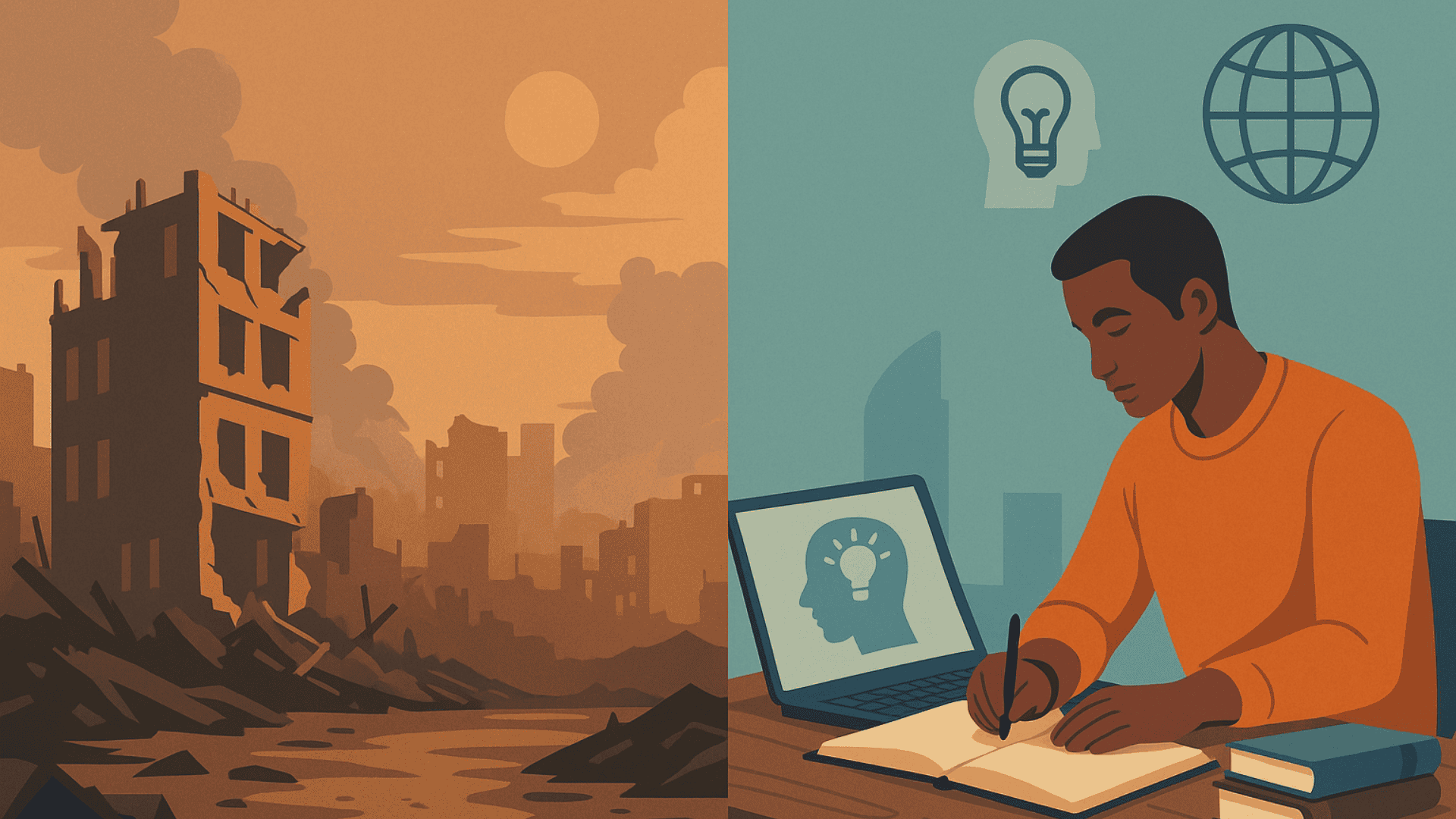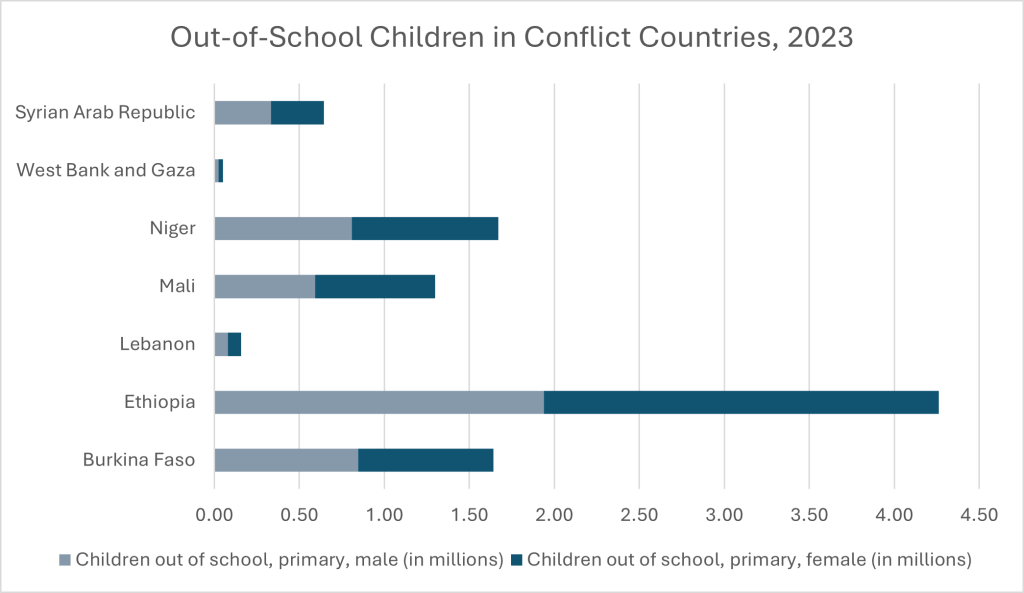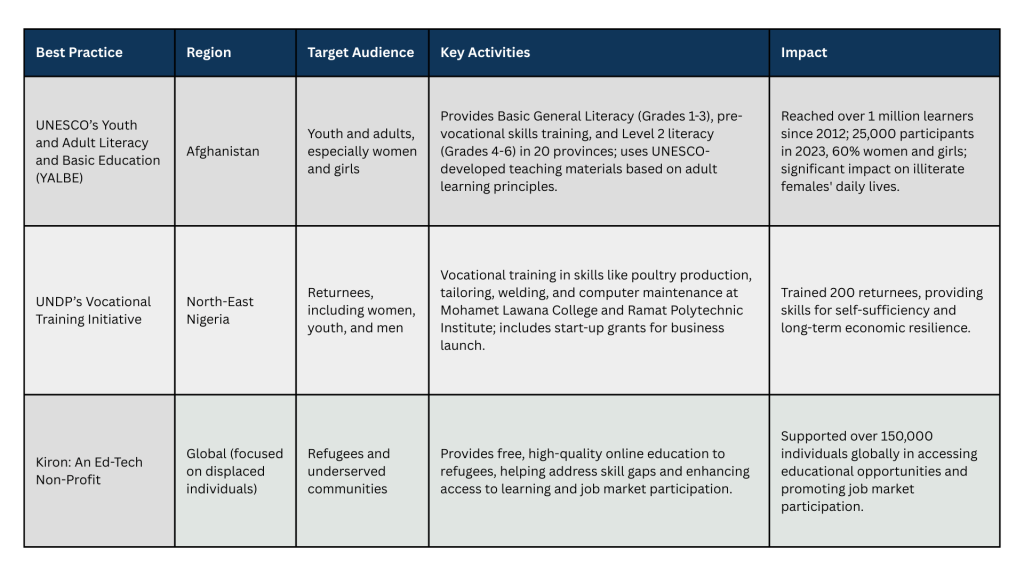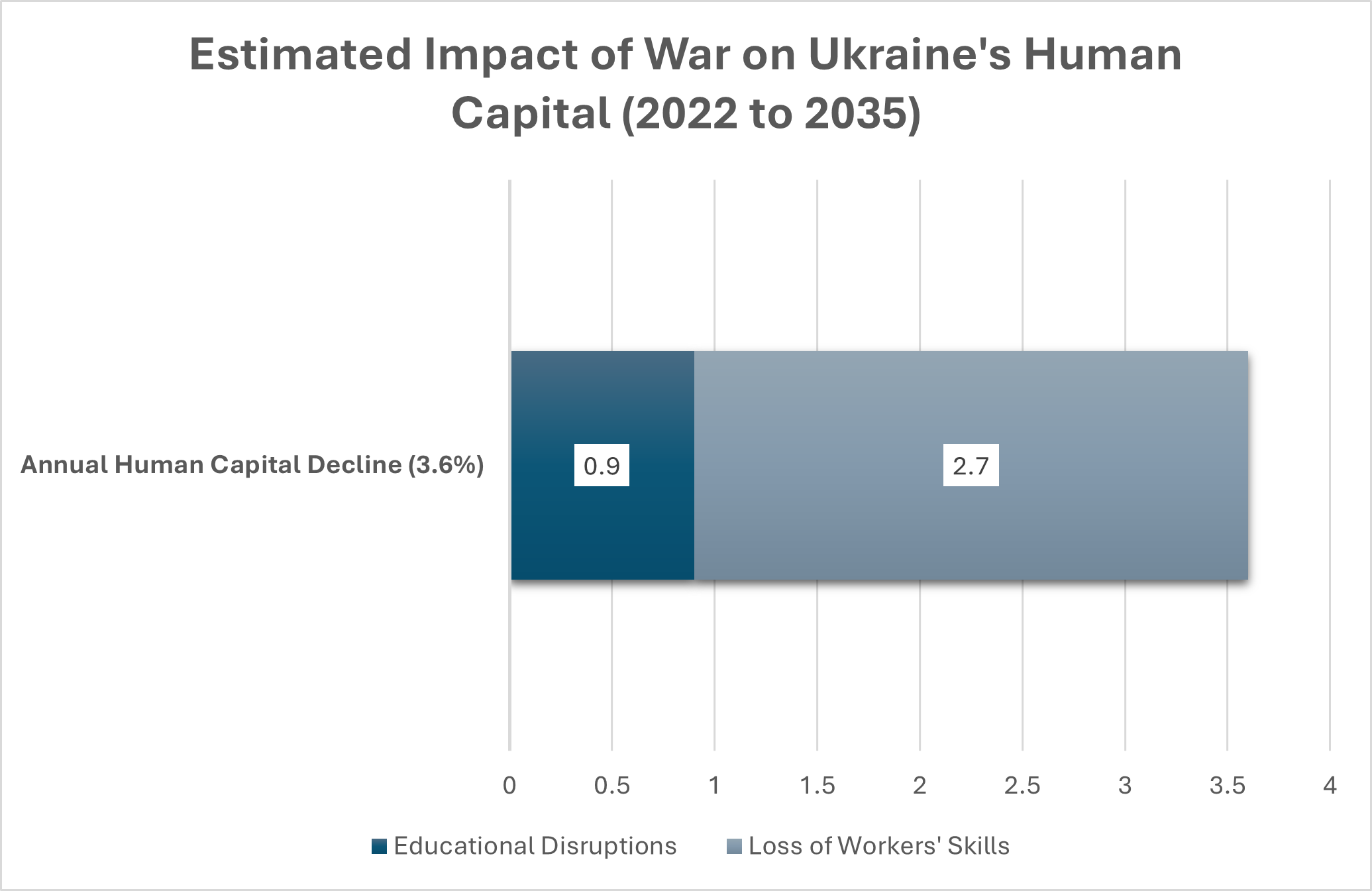
28 Apr From Conflict to Capability: Lifelong Learning for Job Security in Vulnerable Regions
In regions emerging from conflict or economic instability, rebuilding stable employment is a significant challenge. Political uncertainty, damaged infrastructure, and complex regulatory environments often disrupt access to quality education and undermine job security, delaying efforts to build a resilient workforce.
For example, in the two years since Russia’s invasion, Ukraine’s human capital has faced steep decline. There is a projected reduction of up to 3.6% annually from 2022 to 2035—attributable to both educational disruptions (0.9%) and a deterioration in workers’ skills (2.7%).
Human capital plays a critical role in ensuring job security, as gaps in education and skills development reduce individuals’ ability to secure and retain stable employment in a recovering economy. The decline in human capital in post-conflict regions like Ukraine is closely intertwined with disruptions in education. Prolonged instability often forces school closures, displaces students and teachers, and limits access to quality learning environments—undermining the development of future workforce skills. For instance, the civil war in Syria has resulted in the destruction of more than 7,000 schools.

Source: World Bank
The above data reveals the severe impact of conflict on education, with millions of children, particularly girls, unable to access schooling in affected regions. This disruption not only limits individual development but also threatens long-term job security, as a poorly educated workforce hinders economic recovery and stability.
To recover and rebuild, conflict-affected regions cannot depend solely on conventional education models. Such situations underscore the urgent need for sustainable solutions to restore economic stability and job security in these areas. In today’s fast-changing technological landscape, lifelong learning will be critical to continuously refresh workers’ hard and soft skills—ideally every two to four years—to foster adaptability, economic resilience, and long-term growth.
Lifelong Learning: A Pathway to Resilience
Lifelong learning—continuous education and skill development throughout an individual’s life—emerges as a vital strategy to combat unemployment and build resilience in vulnerable regions. By equipping individuals with adaptable skills, lifelong learning enables them to navigate changing job markets and economic landscapes. In Ukraine, for example, embracing lifelong learning is seen as essential for post-war recovery, allowing the existing workforce to be reskilled and adapt to new economic realities.
Benefits of Lifelong Learning for Job Security in Vulnerable Regions
- Resilience Against Displacement: Continuous skill development equips individuals with diverse and adaptable competencies, reducing the risk of unemployment caused by automation, economic shocks, or shifting industry demands.
- Improved Employability: Access to ongoing education and training improves the prospects of securing formal employment, especially in areas where traditional job opportunities are scarce or seasonal.
- Pathways to Self-Employment: Lifelong learning fosters entrepreneurial skills, enabling individuals to create alternative livelihoods through micro-enterprises or digital platforms, thus enhancing economic self-reliance.
- Bridging Skill Gaps: Targeted learning initiatives address critical skill shortages in vulnerable regions, aligning the local workforce with evolving market needs and attracting investment that supports job creation.
To translate the benefits of lifelong learning into tangible outcomes, it is essential to look at how these principles are being applied on the ground. Across the globe, a range of innovative programs are demonstrating how continuous education can drive resilience, improve livelihoods, and support long-term recovery—particularly in vulnerable and conflict-affected regions. The following best practices highlight how targeted lifelong learning initiatives are bridging skill gaps and creating pathways to economic inclusion.

Building a Resilient Future
In the face of conflict and economic instability, lifelong learning stands as a beacon of hope, equipping individuals with the tools needed to rebuild their lives and communities. By investing in continuous education and skill development, vulnerable regions can foster sustainable development, strengthen social cohesion, and promote lasting peace. At the Frost & Sullivan Institute, we believe that lifelong learning is not only a pathway to personal empowerment but also a critical lever for ensuring long-term job security and economic inclusion for vulnerable populations worldwide.
Blog by Sakthi Kumararaja,
Associate, Frost & Sullivan Institute

